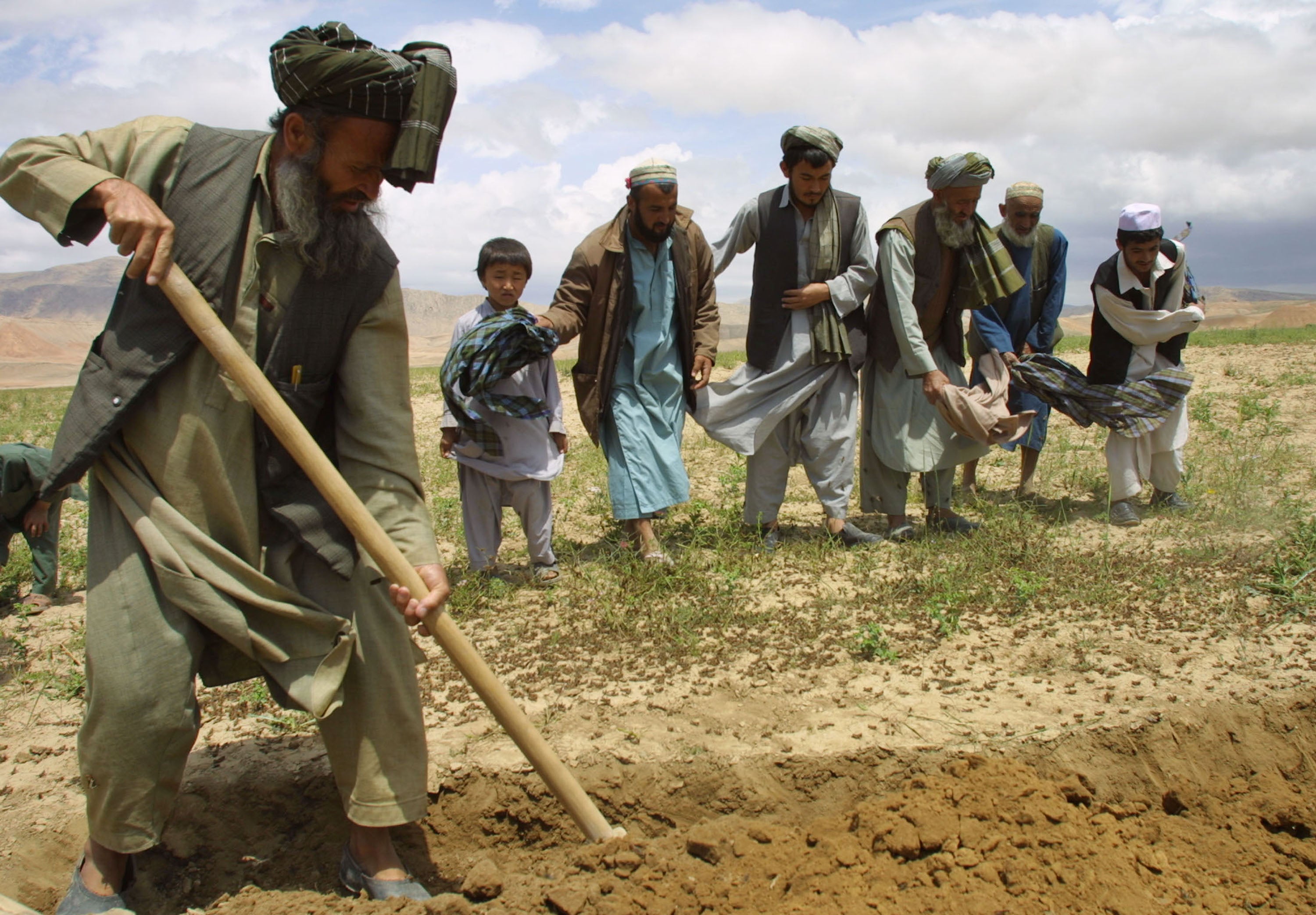With its economy in meltdown and malnutrition rising, now Afghanistan is hit by swarms of locusts
Locust infestation could wipe out 25 per cent of Afghanistan’s wheat crop this year as 875,000 children slip into malnutrition

A swarm of damaging locusts threatens to eat its way through a quarter of Afghanistan’s annual wheat crop – at a time when the Taliban-ruled country is plagued with rising poverty, a difficult economy and malnutrition among thousands of children.
Eight of the country’s total 34 provinces have been plagued by the Moroccan locust, known to be the most economically damaging pests in the world, the UN Food and Agriculture Organisation (FAO) said in a statement.
“The reports of Moroccan Locust outbreak in Afghanistan’s breadbasket is a huge concern,” the agency’s Afghanistan representative Richard Trenchard said. “It represents an enormous threat to farmers, communities, and the entire country,” he said.
A full outbreak this year could impact crop losses up to a quarter of the total wheat harvest, translating to between $280m (£223m) and $480m (£383m) in economic losses, the FAO said.
Authorities in Afghanistan must urgently fund locust-combating measures along with ground surveys to monitor and map locust hatching sites, suggested the FAO.
Two previous big outbreaks that had occurred 20 and 40 years ago, had cost Afghanistan 8 per cent and 25 per cent of its annual wheat production respectively, the UN official said.
The Taliban has confirmed the growing threat to the country’s wheat crop.
“We are aware of the situation and are focusing on reducing its impact and trying to supply the affected areas with the pesticides needed,” said Misbahudeen Mustaeen, Taliban’s spokesperson at the agriculture, irrigation and livestock ministry.
Thousands of locals in the eight affected provinces are working to eradicate the locusts before they reach their adult stage, which is when they will spread widely and fly to farmlands, resulting in crop damage.
This multiplies Afghanistan’s continuing domestic crisis as the nation reels under its third consecutive year of drought and the threat of malnutrition leaves more than 800,000 children vulnerable.
Afghanistan is facing a critical shortage of food which has been hampered by the lack of financial inflow in its economy.
At least 875,000 children in Afghanistan will suffer from life-threatening acute malnutrition this year, said Melanie Galvin, chief of nutrition at the UN Children’s Fund.
Afghanistan faces an urgent funding gap of $21m (£16.7m) to purchase essential supplies for treating malnutrition and also training health workers around the country, she said.
Millions of children require ready-to-use therapeutic food (RUTF), which is essentially an energy-dense paste of milk powder, vegetable oil, sugar, peanut butter, powdered vitamins and minerals.
The UN official has pointed to a critical funding gap for the RUTF.
“This is a highly efficient and effective small package that we give to children, and they can be cured in as little as eight weeks,” said Ms Galvin.
Severe acute malnutrition is life threatening in the short term but in the long term, it could impair growth and mental development of a child throughout her life.
Afghanistan’s woes have multiplied drastically after the Taliban took over, as the international community has halted its trade with the nation and not recognised the hardline Islamist regime as the official administration.
The country’s assets abroad have also been frozen, striking its domestic economy and leaving millions in a humanitarian crisis.
Kabul needs $4.62bn in aid for nearly 24 million Afghans in need, the UN Office for the Coordination of Humanitarian Affairs said last month.





Join our commenting forum
Join thought-provoking conversations, follow other Independent readers and see their replies
Comments